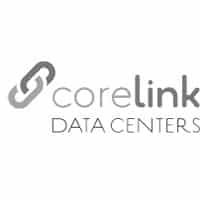When we discuss data centers it seems that a conversation about UPS (uninterruptible power supply) and generators go hand in hand. Redundant power with a reliable UPS battery or backup generator have long been the standard approach to ensuring a facility can maximize uptime and that a mission critical facility can fulfill the demand placed on it. As often happens with data centers, many facility managers are keeping an eye on larger locations from companies like Google or Yahoo, ready to take cues from what works on such a large scale and implement them to better improve energy efficiency and make technological advancements. Yahoo has moved towards centers that do not use such traditional protection but, rather, a network of facilities that can absorb the load should an outage occur.
This shift toward eliminating the use of Uninterruptible Power Supply and backup generators is unprecedented and may significantly improve energy efficiency if it is able to be successfully implemented. Additionally, it will reduce the need for routine UPS maintenance or the use of UPS batteries. Data Center Knowledge explains how a company like Yahoo is making forward-thinking changes to improve efficiency, “But Yahoo is considering going without UPS and generators for some future data center projects. It’s not alone in advocating design choices that represent a huge departure from current practice. A number of data center designers are urging clients to consider limiting UPS support to loads that are genuinely critical. Scott Noteboom, the head of data center operations at Yahoo, said in his keynote at last month’s 7×24 Exchange conference that the Internet portal is exploring scenarios in which it would build data centers without generators or UPS, and use its network to route around any power outages that occur at those facilities. That’s a strategy that only the largest data center providers can contemplate, as it requires multiple data centers in major network capacity. Google has pursued a similar strategy during maintenance on some of its data centers, shifting capacity to other facilities… Data center designer KC Mares of Megawatt Consulting says he urges customers to take a hard look at which IT functions are truly “always on” essential, and which systems can afford interruptions.” While this may not be a realistic approach for smaller operations without a massive network, perhaps, some locations can dramatically reduce the usage of a UPS and backup generator. Data Center Knowledge also points out that if complete elimination is not an option, many pioneers in the industry are shifting towards a making a decrease as well as why making this shift may have a significant upfront cost but actually will more than pay for itself over time, “Yahoo plans to invest at least $500 million in further expanding its data center infrastructure and shifting its operations to newer, highly-efficient infrastructure. The company is also preparing a new data center design for a series of next-generation facilities it plans to build in 2012 and beyond, in which much of the infrastructure will operate with minimal UPS and generator support. “We are in essence rewiring the entire infrastructure of Yahoo,” said Scott Noteboom, the head of data center operations at Yahoo. “We’ve gained approval to invest half a billion dollars to build new data centers. We’ll be migrating the entire footprint of Yahoo to these more efficient facilities”… “All this efficiency is cool,” said Noteboom, who announced the expansion Thursday at the DataCenterDynamics New York conference. “But we’re saving our company $200 million a year. At our scale, these (new data centers) have a three-year payback.” What is being shown clearly is that more and more facilities are able to make a shift towards a reduced or completely eliminated use of UPS and generators.




























